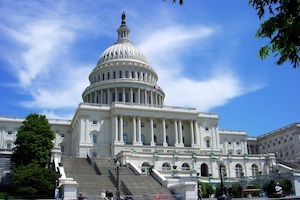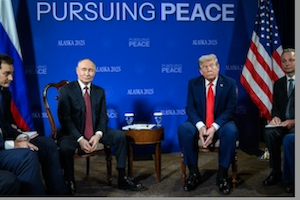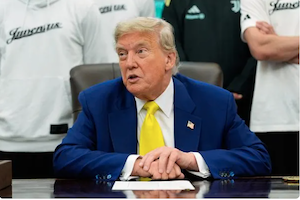World
U.S. Government Shutdown Enters Third Week as Senate Rejects Funding Bill for 12th Time

The U.S. federal government shutdown has entered its third week, with the political deadlock continuing to intensify. On the evening of the 22nd, the Senate voted on a temporary funding bill, but the proposal to reopen the government was rejected for the twelfth time, with 48 votes in favor and 50 against. As a result, about 800,000 federal employees nationwide remain furloughed without pay.
The bill would have temporarily kept the federal government running until mid-November, giving Congress more time to negotiate the annual budget. However, the current impasse stems from differing party demands: Republicans are pushing for a “clean” short-term bill that extends funding until November 21, while Democrats are insisting on simultaneously extending subsidies under the Affordable Care Act, leading to a stalemate.
The shutdown’s effects have now spread across multiple federal departments. Several national parks and museums have been temporarily closed, tax services and visa processing have been significantly delayed, and although some employees at the Transportation Security Administration (TSA) and Federal Aviation Administration (FAA) are required to continue working, morale is low due to the lack of pay. The U.S. Chamber of Commerce has warned that if the shutdown lasts more than a month, it will deal a substantial blow to tourism, aviation, and small businesses.
Analysts note that neither side appears willing to compromise, making a short-term breakthrough unlikely. If the congressional recess extends to November 5, the shutdown will surpass the 35-day record set during the 2018–2019 impasse, becoming the longest in the past decade.
The Washington-based think tank Brookings Institution forecasts that if the shutdown continues into November, it could reduce U.S. GDP growth by about 0.2 percentage points for the quarter and weaken market confidence. Most polls show public trust in Congress’s handling of the budget has fallen to a new low, with nearly 60% of respondents saying that *both parties* should be held responsible for the government shutdown.
- 78 reads
Global Warming Causes Northern Kyushu to Fall — American Cockroaches Rapidly Expanding Their Territory

Due to climate change, global warming has led to a surge of American cockroaches in Fukuoka, Japan, in recent years. In the past, these cockroaches—about 3 to 4 centimeters long, originally from Africa, and unable to tolerate cold—arrived via cargo ships and could barely survive in warm boiler rooms or on street corners where heating leaked out. Now, however, they have almost completely settled across northern Kyushu.
According to data from the Fukuoka Meteorological Observatory, the city’s average minimum temperature in February has risen from **1.24°C (1921–1925)** to **4.92°C (2021–2025)**. Although American cockroaches still cannot survive entirely outdoors, their habitats—such as commercial buildings and restaurants—have expanded, allowing them to endure the winter more easily. Persistently high temperatures have also extended their outdoor activity and breeding periods. Associate Professor **Munetoshi Maruyama** of Kyushu University’s Museum of Natural History noted that “the number of American cockroaches has been increasing rapidly in northern Kyushu over the past two or three years.”
Now, in this comfortable new habitat, the population of American cockroaches is approaching that of Japan’s common smoky-brown cockroach and the smaller German cockroach. Particularly in sewers—where food is abundant and the environment is warm and humid—they thrive as if in paradise. Like German cockroaches, American cockroaches are sensitive to cold, meaning that in the future, they will likely be seen even more frequently in restaurants and commercial buildings.
- 72 reads
Sanae Takaichi Elected as Japan’s First Female Prime Minister

On the afternoon of the 21st, Japan’s House of Representatives held a vote to nominate the next prime minister. Liberal Democratic Party (LDP) leader Sanae Takaichi received majority support and was officially nominated as Japan’s 104th prime minister. Although the House of Councillors produced a different result, under the Japanese Constitution, the decision of the House of Representatives takes precedence. Takaichi is thus confirmed as the first female prime minister in Japan’s history.
The prime ministerial nomination vote is conducted separately in both the House of Representatives and the House of Councillors through recorded ballots. A candidate must receive more than half of the votes to be elected. If no candidate secures a majority, a runoff is held between the top two candidates, with the one receiving more votes elected. If the two houses produce different results and a joint committee fails to reach a consensus, the decision of the House of Representatives prevails, as stipulated by the Constitution.
Takaichi secured a majority in the lower house, confirming her appointment as prime minister and making history as the first woman to lead the Japanese government. The new cabinet is expected to be formed within the week and will face multiple policy challenges, including economic revitalization and diplomatic and security issues.
Takaichi is scheduled to deliver her policy speech on the 24th, outlining the key priorities and future direction of the new administration.
- 60 reads
India Sets Guinness World Record by Lighting Over 2.6 Million Oil Lamps for Diwali Celebration

On October 20, local time, the holy city of Ayodhya, India, celebrated the annual Diwali festival by lighting a record-breaking 2,617,215 oil lamps along the banks of the Sarayu River, setting a new Guinness World Record. The spectacular sea of lights was jointly organized by the Uttar Pradesh Tourism Department and the Ayodhya Municipal Government. The event also featured cultural performances, laser light shows, eco-friendly fireworks, and drone displays, adding vibrant colors to the festive atmosphere.
Indian Prime Minister Narendra Modi extended his greetings to the nation on Diwali, expressing hope that the festival’s light would illuminate people’s lives with harmony, happiness, and prosperity, and bring positive energy to everyone. He urged citizens to purchase locally made products during the festival to support domestic industries and encouraged them to share their experiences on social media to promote Indian goods—showcasing the creativity and diligence of India’s 1.4 billion people.
Diwali, observed on the 15th day of the eighth month of the Hindu lunar calendar, originates from the epic Ramayana and symbolizes light triumphing over darkness, good conquering evil, and knowledge defeating ignorance. Traditionally, families decorate their homes with earthen oil lamps (diyas) at their doorsteps, though in recent years, many communities have switched to electric lights for safety and environmental reasons. Fireworks and firecrackers have also been reduced due to air pollution concerns. During the Diwali season, people often receive festival bonuses similar to Taiwan’s year-end bonuses, boosting consumer spending as merchants launch holiday promotions to capitalize on the festive shopping surge.
- 67 reads
U.S. Citizens Protest Trump’s Policies; Republicans Condemn March as “Anti-American”

Following similar events in June 2025, all 50 U.S. states once again erupted in anti-Trump “No King Day” demonstrations on the 18th. Over 2,600 marches were held nationwide, with millions taking to the streets of major cities including Boston, Washington, New York, Chicago, Los Angeles, Atlanta, Austin, and Seattle to express discontent over the administration’s handling of the rule of law, human rights, and immigration policies. The Republican Party blamed the protests on far-left group Antifa, condemning them as “anti-American gatherings.”
In New York City, the largest in the country, participation reached an estimated 100,000 people, with around 20,000 crowding the area around Times Square and Seventh Avenue alone. From early morning, the streets and subway entrances were filled with demonstrators holding signs and chanting slogans such as “Democracy is not a monarchy” and “The Constitution is not optional.” The scene was filled with creative posters and costumes, including caricatures depicting Trump as a Soviet leader, mocking his alleged authoritarian tendencies.
Similar scenes unfolded in Boston, Washington, Chicago, Atlanta, Austin, Seattle, and Los Angeles. Protesters focused on issues such as alleged illegal detentions by immigration enforcement agencies, federal National Guard interference in local affairs, cuts to healthcare subsidies, and the potential consequences of recent redistricting efforts.
Meanwhile, Trump was at his Mar-a-Lago estate in Florida, attending a MAGA fundraising gala reportedly priced at $1 million per table. In an interview with Fox Business, he remarked, “They say I’m a king — but I’m not.” However, just hours after the protests began, he posted an AI-generated video on his social media platform depicting himself wearing a crown, piloting a fighter jet, and dropping excrement on protesters — a move that quickly sparked a fresh wave of controversy.
- 52 reads
Nobel Physics Laureate Yang Chen-Ning Dies at 103

Foreign media reported that Nobel Physics Laureate and renowned physicist Yang Chen-Ning passed away in Beijing on the 18th at the age of 103. Yang, a celebrated figure in the world of physics, jointly won the 1957 Nobel Prize in Physics with Tsung-Dao Lee for their groundbreaking work on parity nonconservation. However, he is perhaps best known to the public for marrying 28-year-old Weng Fan in 2004 at the age of 82 — a union often described by the media as a “grandfather-granddaughter romance.”
According to a press release cited by foreign outlets from Tsinghua University in Beijing, Yang passed away on the 18th. The statement recounted his life and achievements. Born in 1922, Yang went to the United States in 1945 for graduate studies and, together with Tsung-Dao Lee, proposed the theory of parity violation, earning them the Nobel Prize. His research made outstanding contributions to statistical mechanics and particle physics. Yang was also an academician of several prestigious institutions, including Academia Sinica, and held honorary doctorates from more than twenty leading universities worldwide. He received numerous honors, such as the U.S. National Medal of Science and the Franklin Medal.
Despite his towering status in the field of physics, Yang was not without controversy, particularly regarding his personal life and his falling-out with Tsung-Dao Lee. The two famously parted ways in 1962, and although both have spoken publicly about the incident, differing accounts have left the true cause uncertain.
As for his personal life, Yang’s 2004 marriage to Weng Fan drew widespread attention. The relationship often made headlines, but Yang repeatedly stated that their marriage was founded on genuine affection and mutual understanding, despite public skepticism.
- Read more
- 107 reads
Trump Says Progress Made in Call with Putin; Both to Meet in Hungary

On the 16th, U.S. President Donald Trump stated that he had a phone call with Russian President Vladimir Putin and that, in an effort to end the Russia-Ukraine war as soon as possible, the two sides will meet in Hungary at a later date. The exact date of the meeting is still under negotiation.
Trump wrote on his social media platform *Truth Social* that he recently received a call from President Putin. At the beginning of the conversation, Putin congratulated the United States on achieving a major peace breakthrough in the Middle East. Trump said he believes that this experience will help advance negotiations with Russia and become a key milestone in efforts to end the Russia-Ukraine war.
This marks the eighth conversation between Trump and Putin this year. The phone call lasted approximately 2.5 hours and included discussions on Middle East peace, post-war economic cooperation between the U.S. and Russia, and plans for a meeting in Budapest, Hungary, within the next two weeks to discuss an end-of-war proposal for the Russia-Ukraine conflict. Trump stated that the call achieved significant progress and could be a major turning point in promoting peace talks to end the war.
U.S. Secretary of State Marco Rubio and other members of the American delegation are scheduled to hold preparatory talks with Russian officials next week to arrange the upcoming summit and lay the groundwork for the meeting between the two leaders.
- 83 reads
Frequent Deaths Linked to Scam-Related Trips to Cambodia: South Korea Issues Travel Ban

According to media reports, due to a sharp rise in job scam, kidnapping, and detention cases involving South Korean nationals in Cambodia, the South Korean Ministry of Foreign Affairs has announced a Level 4 travel alert—*the highest level*, effectively banning travel to Cambodia starting October 16. This comes after a 30-year-old South Korean woman was recently found dead near the Vietnam-Cambodia border. The South Korean government also plans to accelerate the repatriation of Korean scam suspects stranded in Cambodia.
Reports indicate that the South Korean government has identified over 1,000 of its nationals suspected of engaging in fraudulent activities in Cambodia. Between January and August of this year alone, 330 South Koreans went missing after entering the country. On October 14, President Lee Jae-myung stated that the government would mobilize all available resources and take strong diplomatic action to protect its citizens. A task force, led by officials from the Ministry of Foreign Affairs, will be dispatched to Cambodia.
The report also explained that South Korea’s travel advisory system consists of four levels: Blue (Exercise caution), Yellow (Reconsider travel), Red (Advised to evacuate), and Black (Travel prohibited). The newly issued travel ban on Cambodia will be in effect for 90 days. Cambodian police have recently ramped up crackdowns and have arrested hundreds of suspects, including 63 South Korean nationals.
-
- Read more
- 113 reads
Anti-China Sentiment Surges in South Korea; Taiwanese Wear Badges for Protection

At the end of September, the South Korean government began allowing visa-free entry for groups of three or more travelers from mainland China, permitting a stay of up to 15 days. However, repeated incidents of disorderly conduct have triggered a rise in anti-China sentiment across South Korea. In response, many Taiwanese tourists visiting the country have taken to wearing a "Taiwanese badge" — featuring the words "I am Taiwanese" and an image of the national flag (Blue Sky, White Sun, and a Wholly Red Earth) — on their chests to identify themselves and avoid misunderstandings. This move has sparked heated discussions on Korean social media.
South Korea’s decision to open its borders to Chinese tour groups is aimed at stimulating its economy. Nevertheless, anti-China sentiment persists, especially in major tourist areas like Myeong-dong, where anti-China protests have been seen near city government buildings. As tensions rise, Taiwanese citizens have also become unintended targets. In April of this year, a South Korean man in his 30s attacked two Taiwanese tourists with a soju bottle at a bus stop, mistakenly believing they were Chinese after hearing them speak Mandarin in a restaurant.
According to statistics from the Korea Tourism Organization, as of August, one in every three foreign tourists in South Korea was from China. To avoid being mistaken for Chinese nationals, many Taiwanese travelers have started wearing Taiwan badges to distinguish themselves. While the badge may seem like a small measure of protection during travel, it also serves as a reminder that prejudice and hatred often affect more than just a single group — they can spread across an entire society. As we rush to draw boundaries, perhaps what we should consider most is how to calm the hatred. What the world truly needs is peace and love.
- Read more
- 324 reads
Trump Declares End to Gaza War as Hamas Releases Final Group of Hostages

After two years of conflict, U.S. President Donald Trump officially announced the end of the Gaza War on the 13th. According to the ceasefire agreement, Hamas released the final group of Israeli hostages, while Israel released a number of Palestinian prisoners. Families on both sides reunited with their loved ones in Tel Aviv and Gaza, creating emotional scenes.
According to foreign media reports, the Israeli military confirmed that 20 hostages were safely returned across the border by the Red Cross. Thousands of people gathered in Tel Aviv’s "Hostage Square" to celebrate—waving national flags and shedding tears of joy. Similar crowds gathered in Gaza, where around 2,000 freed prisoners arrived at hospitals. Locals chanted slogans such as “Freedom” and “The war is over.”
In a speech before the Israeli parliament, Trump declared: “The skies are calm, the guns are silent, the sirens have stopped, and the sun rises over a land returning to peace.” He described the agreement—brokered by the United States, Egypt, Qatar, and Turkey—as “one of the greatest peace deals in history.”
The agreement includes the release of hostages by Hamas, the release of prisoners by Israel, and the suspension of certain military operations. Following the announcement, Trump and Egyptian President Abdel Fattah al-Sisi hosted a summit in Sharm el-Sheikh, the Red Sea resort city, bringing together more than 20 world leaders to discuss the future governance, security, and reconstruction of Gaza. However, neither Israel nor Hamas attended the summit, and notable absences included Saudi Arabia and the UAE—raising concerns over the agreement’s long-term viability.
Since the war broke out in October 2023, over 68,000 people have died in Gaza during the two-year conflict. The 20 hostages released were the last surviving captives from the 251 Israelis abducted during Hamas’s initial assault. An additional 26 hostages have been confirmed dead, with two still missing.
International humanitarian organizations warn that Gaza is facing extreme shortages of food, medical supplies, and fuel, putting hundreds of thousands of residents at risk. Major unresolved challenges remain, including whether Hamas will disarm, the future governance of Gaza, and ongoing tensions between Israel and Palestinians in the West Bank. These issues will deeply impact the trajectory of the peace process.
- 63 reads
Human Rights
Fostering a More Humane World: The 28th Eurasian Economic Summi

Conscience, Hope, and Action: Keys to Global Peace and Sustainability

Ringing FOWPAL’s Peace Bell for the World:Nobel Peace Prize Laureates’ Visions and Actions

Protecting the World’s Cultural Diversity for a Sustainable Future

Puppet Show I International Friendship Day 2020

